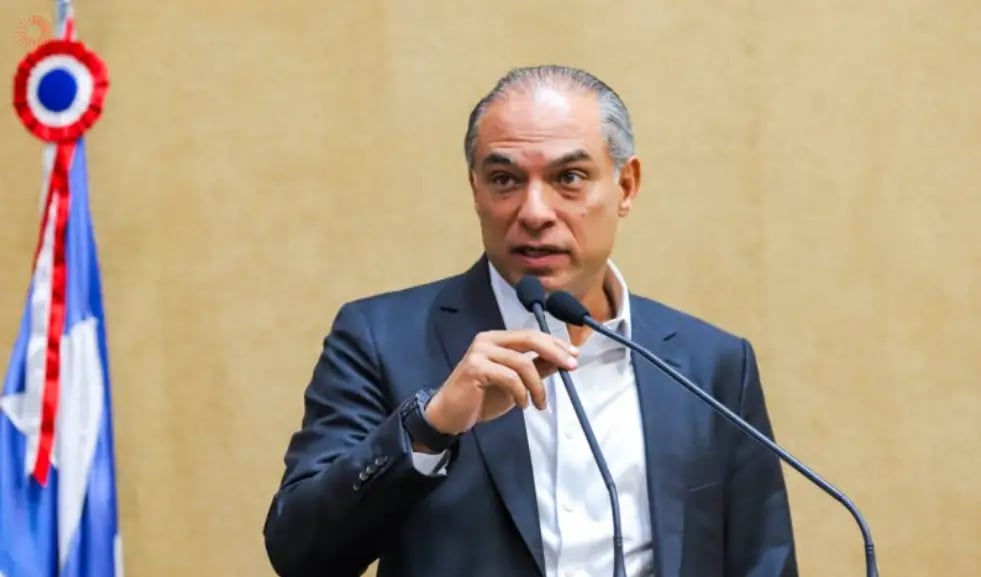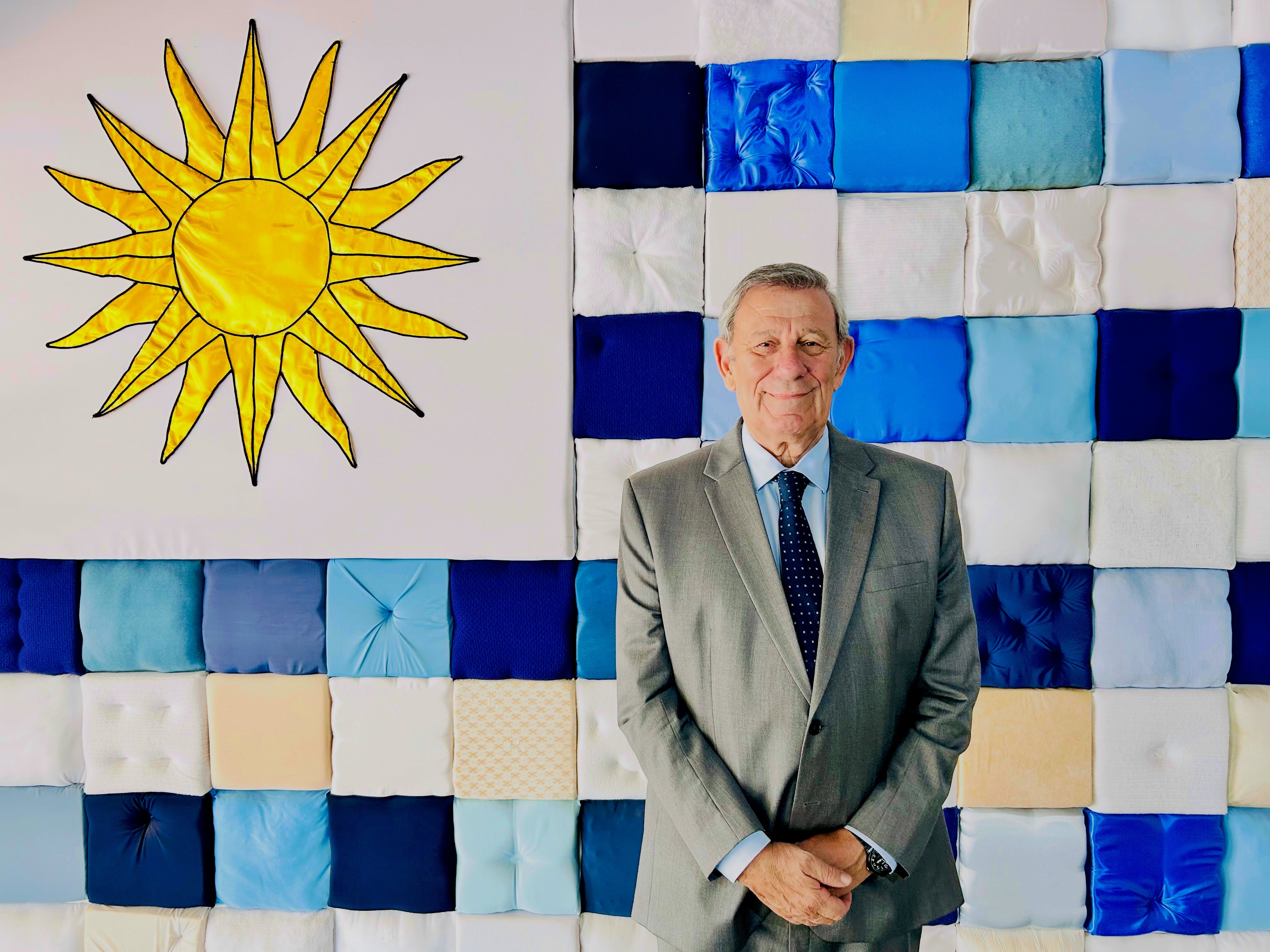Hello! Welcome back to the Brazil Sports newsletter, brought to you by The Brazilian Report. This week, Brazil’s regulated sports betting market kicks in, and the sponsor of one of the country’s biggest football teams could be among the corporate casualties.
If you have any questions about this newsletter, or topics you’d like to see covered in future issues, send me an email at [email protected]

Corinthians could lose top sponsor as government betting regulations kick in

Esportes da Sorte brought Dutch striker Memphis Depay to Corinthians in what was widely regarded as the most high-profile signing in Brazilian football that year. However, the company's position appears increasingly precarious. Photo: Ronaldo Barreto/Thenews2/Folhapress
Just over six years ago, betting on football was illegal in Brazil. Today, betting companies sponsor almost 90% of the 60 clubs in the country’s top three national divisions.
Online bookmakers account for the three biggest shirt sponsorship deals in Brazil at the moment, including Palmeiras’s soon-to-be-announced partnership with Sportingbet (worth up to BRL 170 million, or USD 27.5 million, a year) and those of Brazil’s two most popular clubs, Flamengo and Corinthians, with Pixbet and Esportes da Sorte, respectively.
But the new year has brought about headaches for some of these betting firms — particularly Pixbet and Esportes da Sorte — with an imbroglio that involves the federal government, Supreme Court and many millions of reais.
On January 1, Brazil’s regulated sports betting market came into effect, with only companies licensed by the Finance Ministry being allowed to operate in the country. Betting firms with permission to operate must pay a 12.5% tax on their gross monthly revenues, switch to “.bet.br” internet domains, require facial recognition for new and existing users, and implement policies to combat gambling addiction.
What’s more, the license itself costs each applicant BRL 30 million. Until mid-December, the Finance Ministry had raked in BRL 1.5 billion through these grants — a total that could rise to BRL 2.1 billion.
On December 31, the Finance Ministry published a list of 137 betting companies authorized to operate in Brazil. But Pixbet and Esportes da Sorte were not among them.
Closing the loophole
Along with several other betting companies not on the list, the two firms fell back on licenses they had previously received from the Rio de Janeiro State Lottery (Loterj), which they argued gave them the right to operate in Brazil and obtain the Finance Ministry’s national permit.
That legal standing lasted all of 24 hours, however, as Supreme Court Justice André Mendonça issued an injunction suspending the understanding that betting sites licensed by Loterj could operate nationwide.
After the initial scare, Pixbet, Flamengo’s main sponsor, was granted a temporary national license from the Finance Ministry, having hurriedly paid the BRL 30 million grant at the end of 2024 — when it became clear that its Loterj license would not be enough to stay active in the country. Its operating permit is temporary, as the government still has to verify the legality and actual existence of the funds paid.
Luck is running out for Esportes da Sorte
At the time of writing, however, Esportes da Sorte has yet to receive such temporary permission. And a positive outlook seems unlikely in the short term, which could throw the company’s BRL 100 million a year sponsorship deal with Corinthians (as well as agreements with other clubs Náutico, Ceará, Bahia, Grêmio and the Palmeiras women’s team) into uncertainty.
Beyond the agreed BRL 100 million, Esportes da Sorte was also responsible for bringing Dutch international Memphis Depay to Corinthians, paying almost the entirety of the former Manchester United and Barcelona man’s salary.
As such, if the Esportes da Sorte/Corinthians partnership were to come to an abrupt end, it could also see the club lose the talismanic Dutch forward. After a dreadful start of 2024, Corinthians ended last season as Brazil’s form team, largely thanks to Memphis and his performances on the pitch.
Indeed, the São Paulo club has already been in talks with other potential sponsors from the betting industry, willing to step in should the Esportes da Sorte imbroglio drag on.
While on the surface, the situations of Pixbet and Esportes da Sorte appear to be comparable (with both initially trying to get away with permits from Rio de Janeiro, and not the federal government), the case of Corinthians’ biggest backers is far more complicated.
The company and its CEO, Darwin Filho, are under investigation in the northeastern state of Pernambuco for alleged money laundering tied to sports betting and other forms of online gambling. The case also initially included Vai De Bet, an online bookmaker which served as the main shirt sponsor for Corinthians until June of last year, but that portion of the inquiry has since been shelved.
The ongoing police operation means that Esportes da Sorte is unlikely to pass the Finance Ministry’s analysis of trustworthiness any time soon — and when Corinthians take to the field for their state championship debut on Thursday against Red Bull Bragantino, there may well be a large Esportes da Sorte-sized blank space on the front of their shirts.
Meanwhile, the company has filed for an injunction to allow it to operate nationally on a temporary basis. At the time of writing, said request had not yet been analyzed.
Betting and football go hand in hand
There is a wider debate to be had here, however. Brazilian football has ceded an enormous amount of influence to betting companies, on and off the pitch. And while this is not a trend exclusive to Brazil, the speed of this process here has been astounding, as highlighted by this newsletter’s top paragraph.
Football betting is now out in the open in Brazil, and has already become a major part of the country’s football culture. The latent social problems this can cause have also surfaced, which we at The Brazilian Report have covered in detail — particularly with regard to the citizens’ use of Bolsa Família welfare payments to place wagers on sports.
When it returns from its end-of-year recess, Brazil’s Senate will continue its ongoing inquiry into sports betting, and several authorities have sought involvement in the topic, including the Federal Accounts Court and Central Bank.
Betting companies and Brazil’s top-flight football clubs have sparked an intense, codependent relationship. Balancing online bookmakers' involvement and financial backing with the necessary safeguards for Brazil’s already indebted society will be one of the sport’s most significant challenges over the coming years.
Other stories we’re following
🎾 Brazilian tennis sensation João Fonseca is set to make his Grand Slam debut this weekend. Fonseca has been tipped as one of the sport’s next big things and stormed through all three rounds of the Australian Open’s qualifying tournament without dropping a set. However, the 18-year-old's round one adversary is Russia’s Andrey Rublev, ranked ninth in the world.
Besides Fonseca, Brazil will have another three representatives at Melbourne Park this year. Thiago Monteiro was drawn against Japan’s Kei Nishikori in the first round, while Thiago Wild faces a tough but winnable opening match against Fabian Marozsan from Hungary. In the women’s tournament, Brazil’s top tennis player Bia Haddad was drawn against rank outsider Julia Riera, and should progress comfortably.
🎩 Brazil’s antitrust authority CADE on December 27 renewed its long-running investigation into whether TV giant Globo holds (or held) a monopoly over the broadcasting of Brazilian football. The probe has been underway since 2021.
⌛ Sports news website GE reports that the first-team squad of Brazilian and South American champions Botafogo is considering leaving pre-season training due to unpaid competition bonuses after November’s Copa Libertadores triumph.
Last month, we showed that while Botafogo raked in vast amounts of prize money last season, the multi-club model of its owners (John Textor’s Eagle Football) could lead to the Brazilian champions bailing out troubled French top-flight club Lyon.
🤑 Italian sports writer Fabrizio Romano reports that Manchester City are in advanced talks to sign Palmeiras’s promising defender Vitor Reis for 40 million euros, which would make the youngster the most expensive center-back in Brazilian football history.







